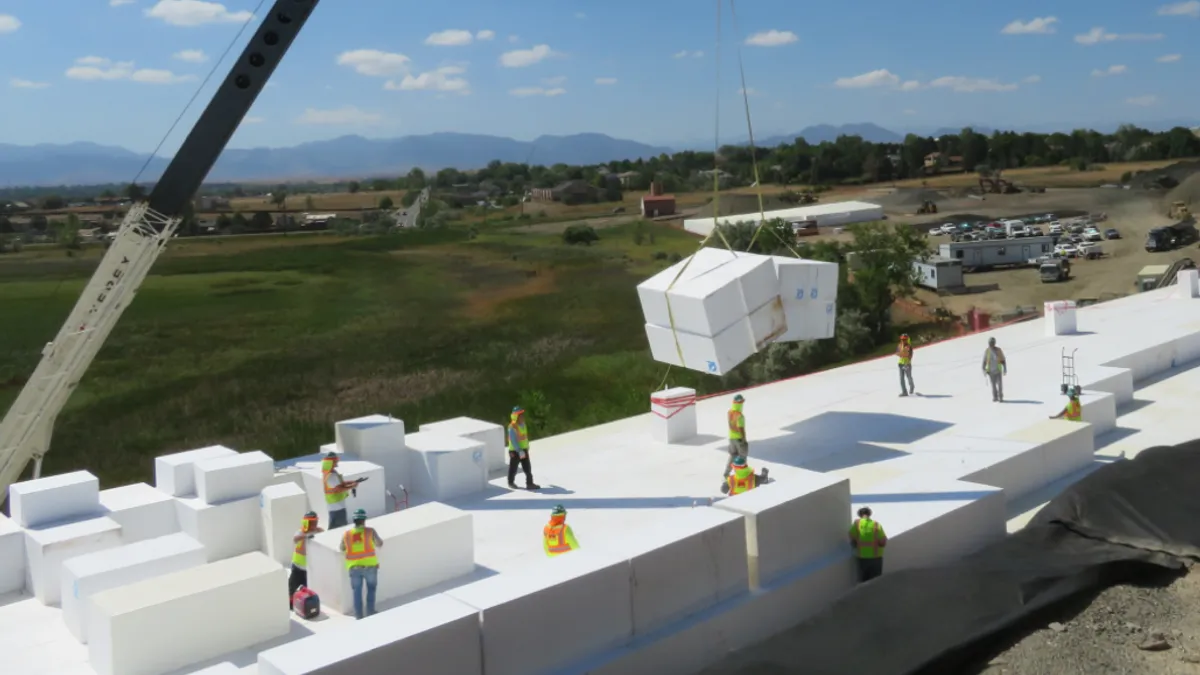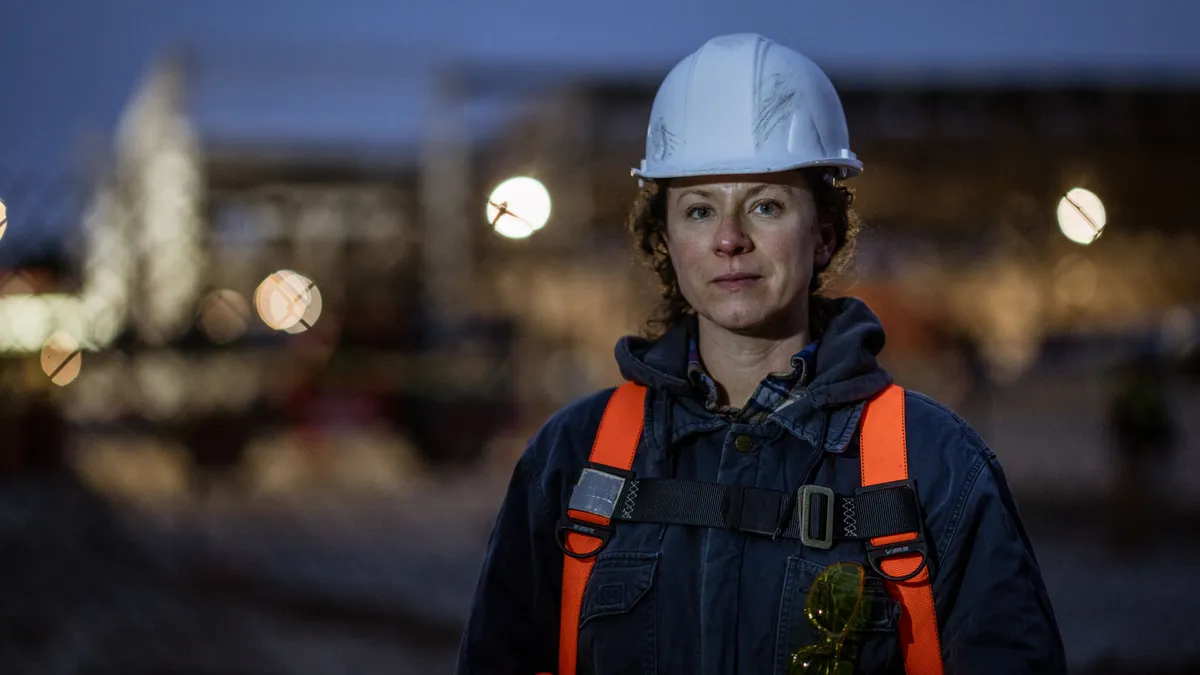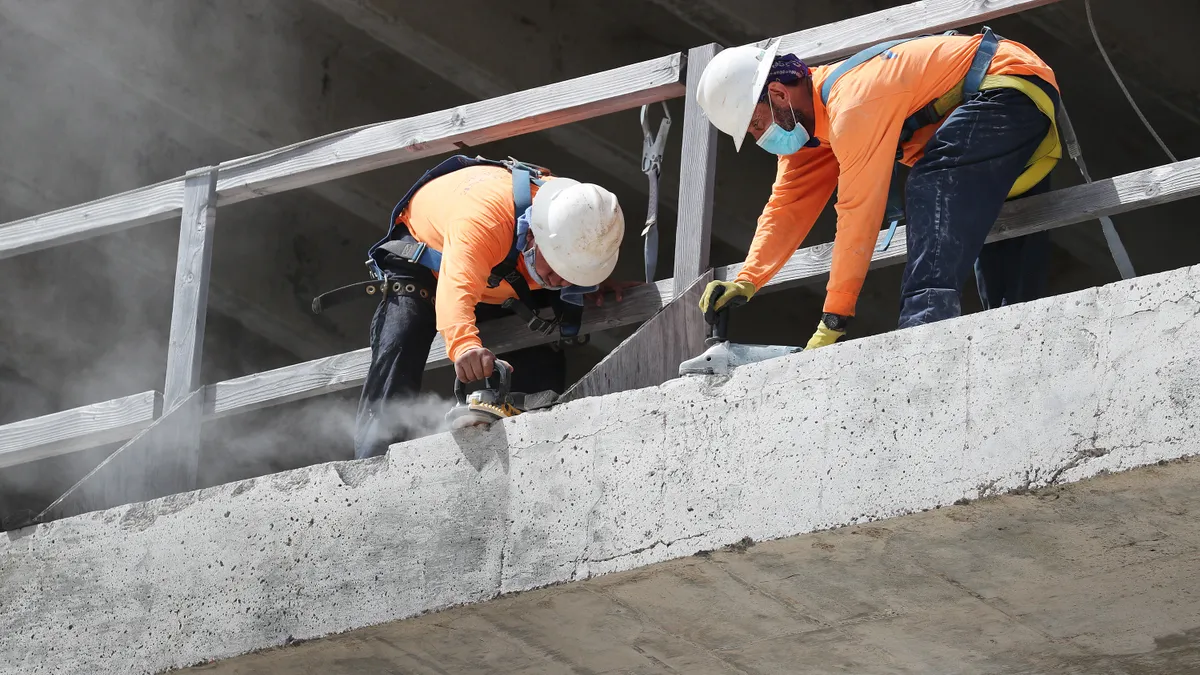Dive Brief:
- When cracks and then a 300-foot-long sinkhole appeared this summer on U.S. 36 between Denver and Boulder, the Colorado Department of Transportation (CDOT) and its subcontractors utilized a unique solution to quickly repair the heavily trafficked road. No one was hurt by the incident or the subsequent damage to a retaining wall, CDOT reported, but the road had to be partially closed.
-
Looking for ways to quickly repair the wall, design engineer Ben Arndt of local firm RJ Engineering conceived the idea to use lightweight expanded polystyrene blocks based on other successful projects he had worked on.
- The project team chose Insulfoam’s Geofoam EPS22 for what it touted as its strength and quick turnaround time. While traditionally used for wall, roof and below grade insulation, the expanded polystyrene (EPS) material, which is reportedly lighter than soil, safely supported highway loading and provided improved slope stability, according to Janna Drake, marketing brand manager of Carlisle Construction Materials, maker of Insulfoam and other construction products.
Dive Insight:
Once the collapsed wall was removed, crews removed 4 feet of dirt below the wall and placed the Geofoam blocks in the trench. A concrete load-distribution slab was placed above the Geofoam, then came a layer of crushed stone followed by concrete pavement.
A permanent wall of precast concrete panels was later added for stability for the Geofoam section, according to Equipment World, which reported that the wall was then anchored by more than 100 caissons drilled into bedrock.
Geofoam allowed the team to work quickly without a lot of deep foundation work, said Matt Hogan, project manager for Kraemer North America, the company brought in to oversee the $20.4 million rebuild.
For Hogan and his team, the ease of installation was particularly noteworthy. "The nice part is being able to train people very quickly, because it’s literally stacking blocks. We’re able to slide the foam right into place,” Hogan said in a press statement.
The team also appreciated the material's load disbursement capability that minimized post-construction settling, resulting in a more stable foundation.
In order to meet CDOT’s October re-opening, crews at Insulfoam plants in six states worked overtime to manufacture over 6,100 8-foot-by-4-foot blocks of material, Drake said. In just 20 days, six Insulfoam plants manufactured and coordinated logistics for over 200 truckloads of Geofoam to be delivered to the site.
Drake said that Geofoam, which Carlisle has been manufacturing since the 1960s, can be used in many other applications including for bridges, ramps, airplane runways and stadium seating.














